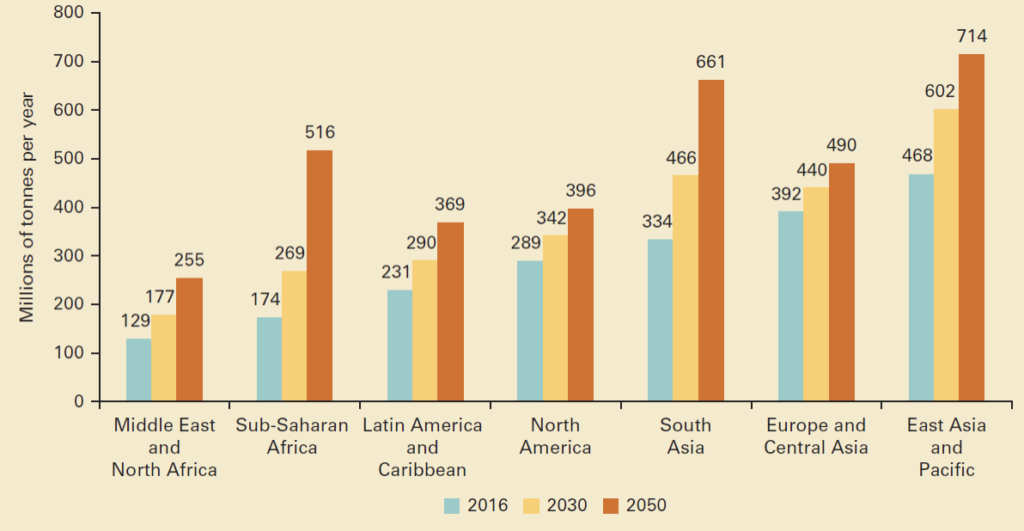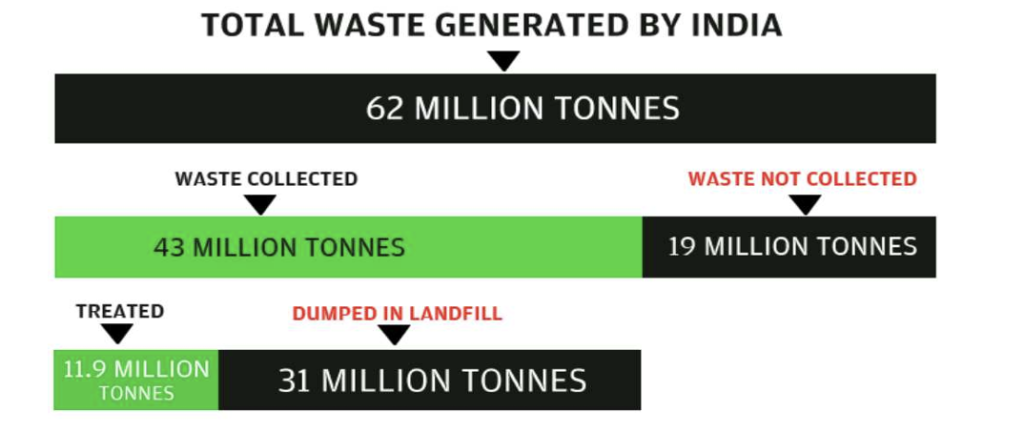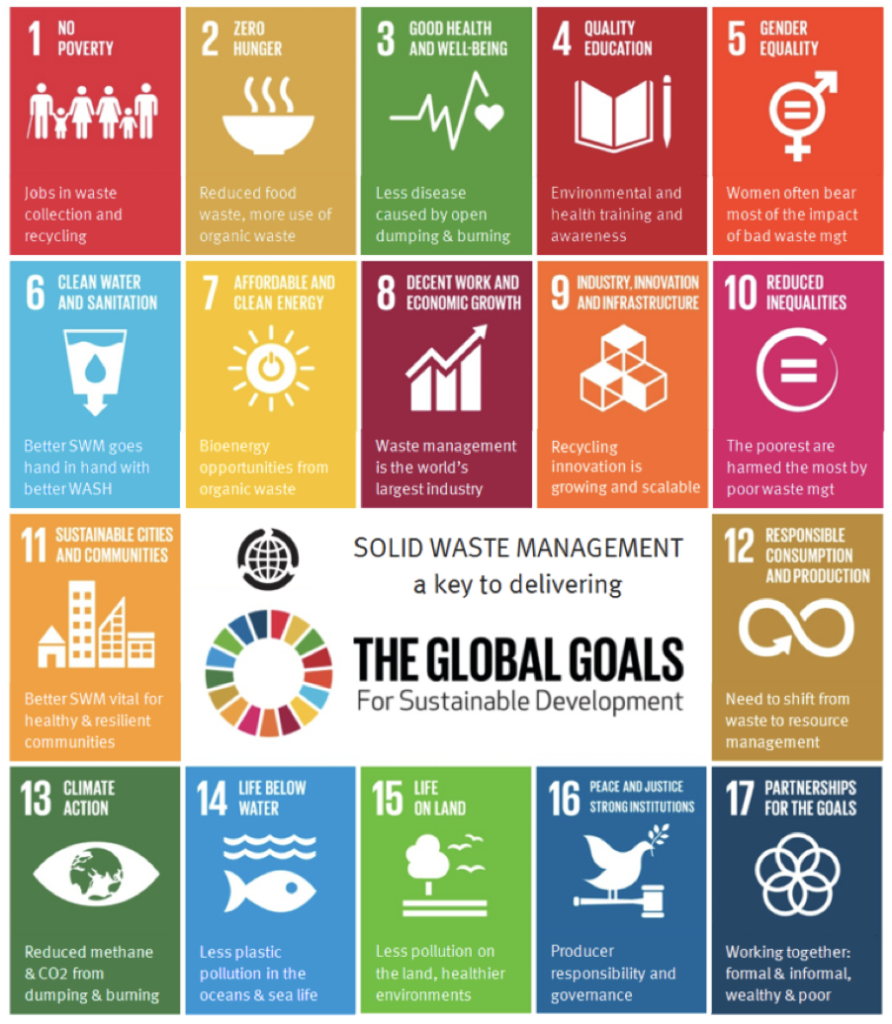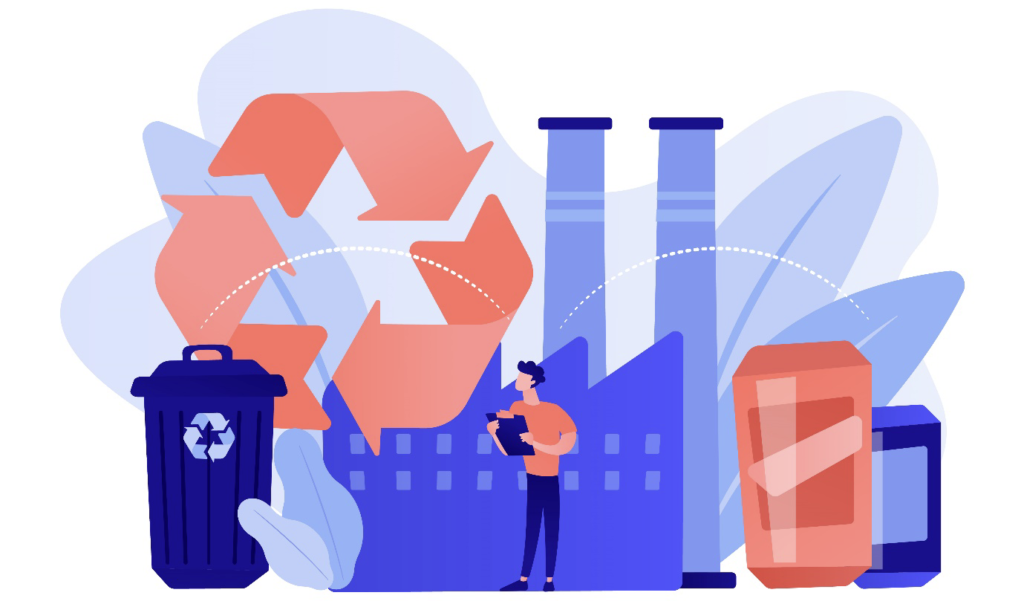
In today’s world, environmental sustainability is a pressing concern that demands immediate attention. It is crucial to reflect on the critical role that digital transformation plays in waste management and how it can contribute to driving environmental sustainability on a global scale. This article aims to provide a comprehensive roadmap for our discussion, beginning with an overview of the global waste management scenario, followed by an exploration of the waste management landscape in India. We will delve into the environmental impact of various waste types generated by corporations and industries and how digital transformation and Zecomy, as a technology platform, plays a pivotal role in addressing these challenges.
The Global Waste Management Scenario: The waste management landscape presents significant challenges on a global scale. According to recent data from the World Bank, the world generates approximately 2.01 billion metric tons of municipal solid waste annually. This staggering amount of waste puts immense pressure on landfills, natural resources, and the environment. Moreover, improper waste management practices, including inadequate collection systems and limited recycling infrastructure, contribute to pollution, greenhouse gas emissions. A paradigm shift is necessary to address these challenges and move towards sustainable waste management practices. To visualize this data, the graph below illustrates the Projected waste generation by region (millions of tonnes/year)

Graph Source: https://datatopics.worldbank.org/what-a-waste/img/v2_projected_waste_generation.png
These numbers are not just statistics; they represent a pressing environmental issue that demands immediate attention. The improper management of waste has far-reaching consequences, including resource depletion, and climate change.
Waste Management in India: India, being the most populous country in the world, faces unique waste management challenges. According to the Central Pollution Control Board (CPCB), India generates an estimated 62 million metric tons of solid waste annually, with approximately 70% of it being inadequately managed. The rapid urbanisation and industrialisation in the country have exacerbated the waste management crisis, resulting in overflowing landfills, contaminated water bodies, and air pollution. To compound the issue, informal waste collection and recycling practices prevail in many areas, further hampering proper waste management efforts. It is clear that sustainable waste management solutions are urgently needed in India to mitigate the environmental and health hazards associated with improper waste disposal. To gain a deeper understanding of the situation, let’s visualize the waste generation patterns in India:

Image Source: Clean your backyard (downtoearth.org.in)
These alarming numbers necessitate sustainable waste management solutions that not only address the quantity of waste but also its environmental impact. To achieve this, we must focus on specific waste streams generated by corporations and industries.
Corporate and Industrial Waste: Environmental Impact and the Path to Sustainability
IT Assets / E-waste / Solar panels: The rapid advancement of technology has led to the rise of electronic waste (e-waste) globally. Improper disposal of IT assets, such as outdated computers, mobile phones, and solar panels, poses significant environmental and health risks. Zecomy addresses this issue by providing a digital platform that ensures responsible disposal, recycling, and proper resource recovery of e-waste.
Lead Battery / Lithium Battery: The increasing demand for energy storage solutions has resulted in the widespread use of lead batteries and lithium-ion batteries. However, the improper handling and disposal of these batteries can lead to soil and water contamination. Zecomy enables the efficient exchange and recycling of batteries, ensuring their safe disposal and reducing their environmental impact.
Plastic & Packaging Materials: Plastic pollution has become a global crisis, with plastic waste contaminating oceans, harming wildlife, and persisting in the environment for centuries. Zecomy promotes sustainable waste management practices by facilitating the recycling and responsible disposal of plastic and packaging materials, helping reduce plastic pollution and its detrimental effects.
Textile (Cotton and Yarn): The textile industry is a significant contributor to waste generation, with discarded cotton and yarn adding to the environmental burden. Zecomy’s digital platform offers a seamless channel for the recycling and proper disposal of textile waste, reducing the industry’s environmental footprint.
Rubber Products: The improper disposal of rubber products, such as tires and industrial rubber waste, contributes to land and water pollution. Zecomy’s digital solutions enable the efficient exchange and recycling of rubber products, ensuring their proper management and reducing their environmental impact.
Waste / Used Oil: Improper disposal of waste oil poses severe risks to ecosystems and human health. Zecomy’s digital platform facilitates the responsible collection, recycling, and proper disposal of waste oil, minimizing its environmental impact.
Metal Scraps / CRCA / Machinaries: The extraction and production of metals have significant environmental consequences. By promoting the recycling and reuse of metal scraps, CRCA (Cold Rolled Close Annealed) materials, and machinery, Zecomy contributes to a more sustainable approach to resource utilization.
Office Scraps / Furniture: Office scraps and furniture contribute to the overall waste generated by corporate entities. Zecomy’s digital solutions enable the proper disposal, recycling, and repurposing of office scraps and furniture, reducing waste and promoting a circular economy.
Zecomy, as a digital platform, harnesses the power of digital transformation to address the environmental challenges posed by corporate and industrial waste. Through its innovative digital platform, Zecomy connects waste generators with authorized buyers and recyclers, ensuring responsible waste disposal practices and promoting resource recovery. By streamlining waste flows, optimizing transportation, and facilitating recycling, Zecomy significantly reduces the environmental impact of waste generated by corporations and industries.
Conclusion: It is vital to recognise the critical role of digital transformation in driving environmental sustainability in waste management. The global waste management situation demands urgent action, and India, in particular, faces significant challenges in this regard. By embracing digital solutions, such as the ones offered by Zecomy and other, we can revolutionise waste management practices, minimise environmental impact, and pave the way for a greener future. With innovative digital platforms and a collective commitment to sustainable waste management, whether you are a seller or buyer of waste, join us on our platform to contribute to a greener future and make a tangible difference in driving environmental sustainability through responsible waste management.

